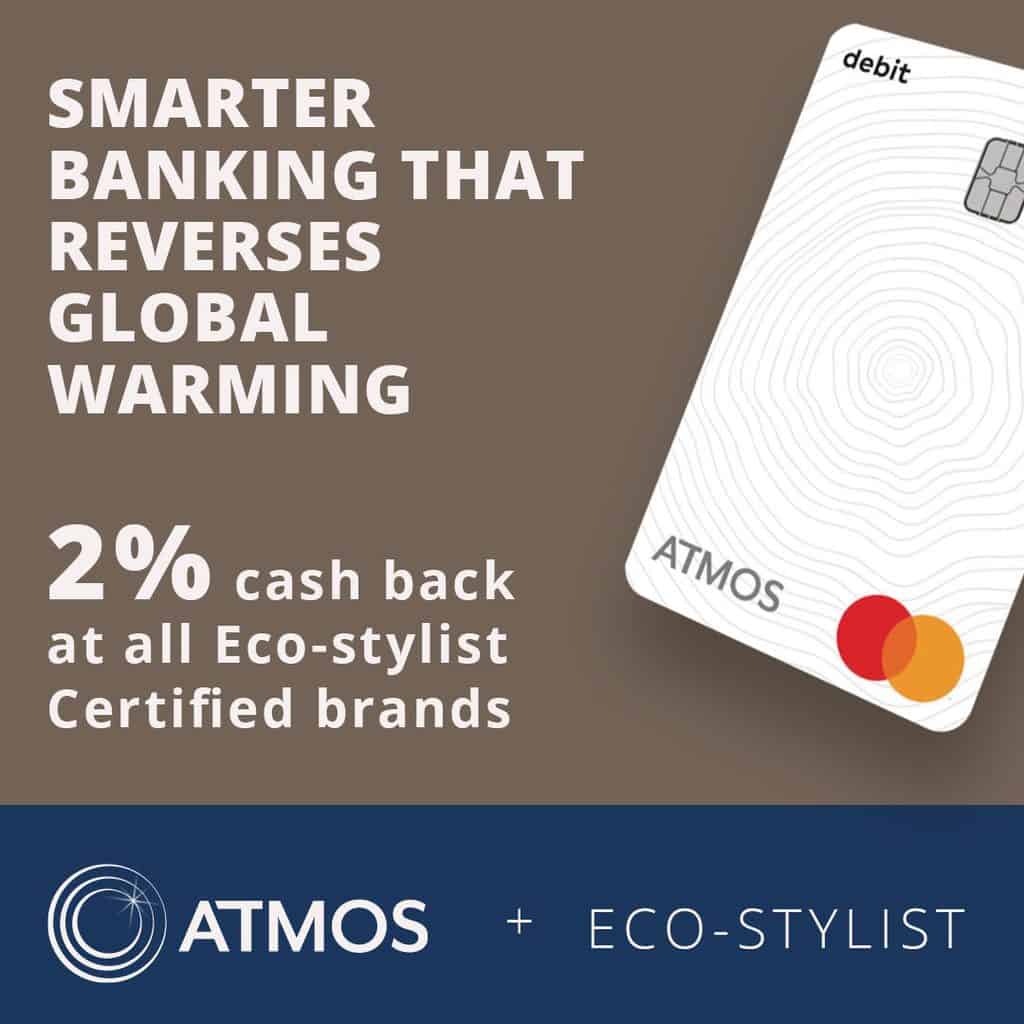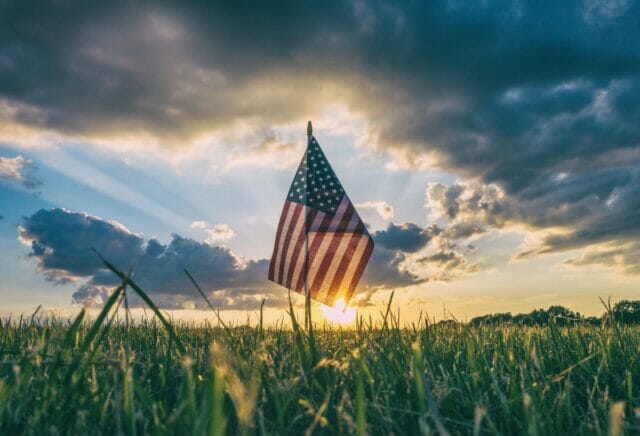
You have most likely noticed products marketed with the label “Made in America.” And you might have assumed high ethical standards and imagined factories where all employees were treated fairly and earned a living wage.
Similarly, when the label reads “Made in China” a different image may come to mind. Maybe you imagined sweatshops with workers sewing for hours on end for only pennies per garment?
The reality: these conditions could be completely reversed. Just as you can find ethical and fair trade factories in China, you can find sweatshops in America.
Something unnerving is going on under the surface and it starts with understanding the origins of your clothing and what made in America really means.
The Double-Standard: Is Made in USA Always Ethically Made?
Eco-Stylist founder, Garik Himebaugh spoke about the topic of “Made in America” on a panel at the Impact Fashion show and forum in 2020. In summary, he points out that when something is American-made, it is usually assumed to have good quality and fair trade manufacturing, regardless of actual conditions.
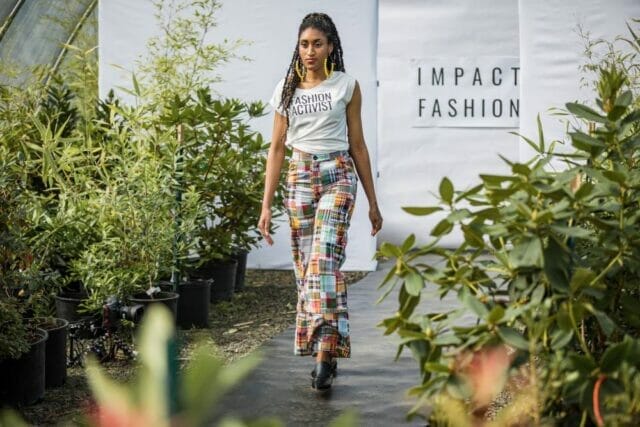
However, when something is made in another country, such as in India or China, we are more often skeptical of the labor conditions and want to know that the workers were treated and paid fairly. Hence, the double standard.
This default trust in American-made clothing is not supported by the fact that 77 random inspections of garment factories conducted in 2015 and 2016 found wage violations at 85% of the factories. Wage theft in American companies is an issue that is also common in fast fashion companies in order to sell clothes at an extremely cheap price at the expense of a worker’s wage. Los Angeles Times states”Wage theft plagues L.A. garment workers.” and asks “Why aren’t fashion retailers held responsible.”
Until recently, factories in LA were getting away with paying workers per piece rather than per hour, and through these means paying their workers somewhere between $3-5/hour, which is below the set minimum wage of $15 and certainly below the living wage of $21.89 for a single adult. Cost of living in LA is even more expensive when factoring in dependents.
A Behind the Scenes Look at Made in America Fashion
Remake’s short film Made in America takes you into the lives of various people involved in the garment industry from factory inspectors to garment workers. It shows two sides of the industry: one that shows how easily these companies can take advantage of immigrant workers, and another where ethical fashion brand, Groceries Apparel, shows exactly how to create a better environment for these workers despite the existing systems that we have.
Change Is In The Air: The Garment Worker Protection Act
In 2021, a landmark bill was passed, SB62, aka The Garment Worker Protection Act. This bill helps close the pay-per-piece loophole in clothing factories in California.
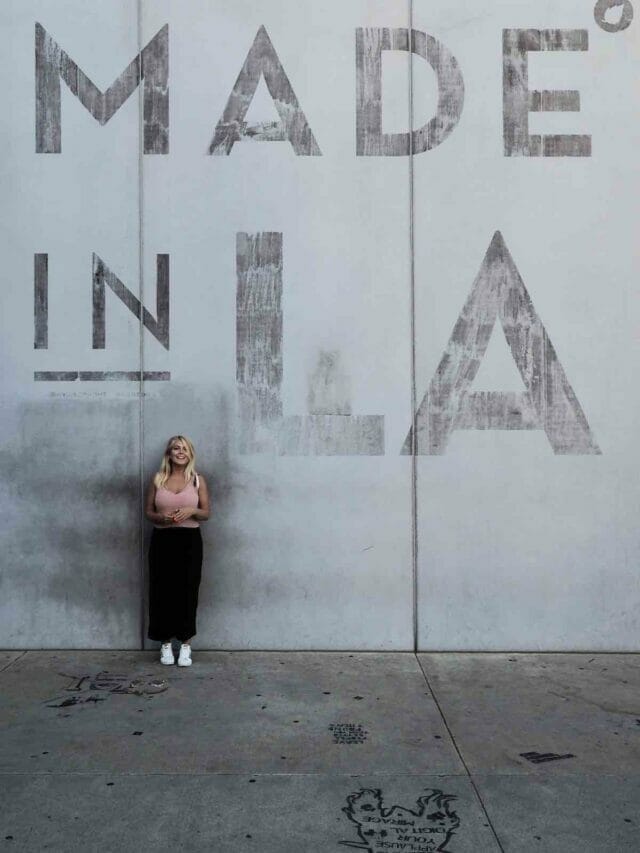
In short, clothing makers in one of America’s fashion hubs, Los Angeles, were sometimes paid per piece of clothing instead of per hour, resulting in pay that was far below the minimum wage. As most Americans know, the minimum wage is below a living wage in most states, and it’s hard enough to make ends meet on a minimum wage, let alone below it.
SB62 helped close this gap and ensure fair pay for clothing makers in LA and California!
A Brief History of Made in America Legislation
Assembly Bill 469, also called the Wage Theft Protection Act of 2011, was a bill made to increase wage theft protections for workers. The bill was called by its opponents a “job killer” that will increase the incentive for companies to develop their factories overseas without these restrictions.
Ilse Metchek, president of the California Fashion Association, has said that the proposed reforms assume that all American garment companies are committing wage theft and are being lumped in with the guilty companies. Note that reforms don’t harm companies that are doing good; they penalize companies that are doing poorly, and force them to perform at higher standards.
Another promising change occurred in Minnesota, where the Minnesota Wage Theft Protection Act, passed in 2019, created additional protections for workers, including criminal charges for employers committing wage theft. By requiring record keeping by employers, wages can be checked for discrepancies to make sure companies are following proper protocol. According to Minnesota Public Radio, this state has one of the toughest laws against wage theft in the country.
Despite the differences between the unsettling factories in Los Angeles, California and the promising employee protection laws in Minnesota, this shows that the government can push through laws to protect their workers. However, there is resistance to changing the status quo, as some companies still have issues with sacrificing large profits in order to treat employees fairly.
New Pending Ethical Fashion Legislation in the US
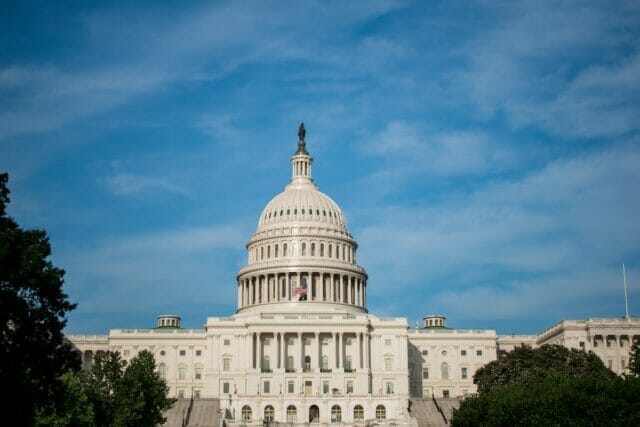
The FABRIC Act
The Fashion Accountability and Building Real Institutional Change Act, aka FABRIC, would be the first federal fashion bill in the US, if passed. This bill helps guarantee some of the same protections California garment workers gained from SB62, but nation wide.
This bill also includes a 30% reshoring tax credit for fashion brands bringing manufacturing back to the US. The clothing manufacturing industry in the US is currently worth $9 billion and employees nearly 100,000 people. Those people could benefit a lot from this bill.
The Fashion Act
Aka The Fashion Sustainability and Social Accountability Act is a state bill in New York that would impact global fashion brands with over $100 million in revenue per year. The bill would require those fashion brands sold in New York to disclose information about the human and environmental impacts of their supply chain.
If passed, this would be a major step towards regulating big fast fashion brands in the US, starting in New York.
The Fashion Workers Act
This state bill, also in New York, targets management agencies and aims to protect models and creative people working in the fashion industry, including hair stylists, make-up professionals, etc. Learn more here.
Where is American Fashion Made?
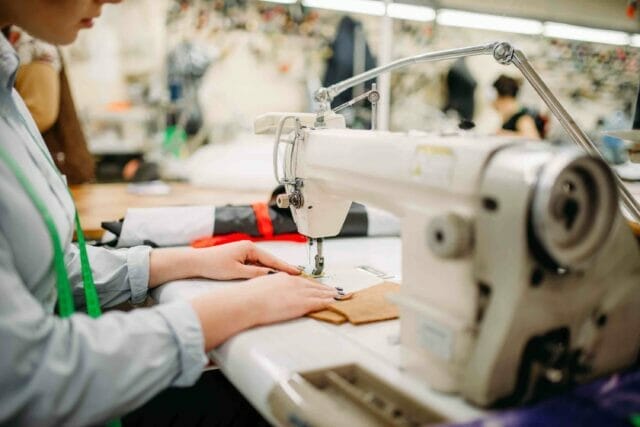
While LA and New York City are hubs for American made fashion, clothing is manufactured in nearly every state in the US.
Does America Have Sweatshops?
Yes, as demonstrated in Remake’s short film Made in America, sweatshops very much exist in the US. While a new law in 2021 helped end this practice in California, the fight is far from over.
Sweatshop labor still happens in garment factories across the US.
So, Is American Made Clothing Good or Not?
The American label on a company doesn’t automatically equate with ethics just as a foreign label doesn’t automatically equate with unethical. American consumers should hold “Made in America” brands to the same standards as brands made overseas.
We should expect the same level of transparency and evidence of fair pay from made in USA brands as we do from any other fashion brand. Having an open dialogue about these issues will only improve the lives of garment factory workers in the US.
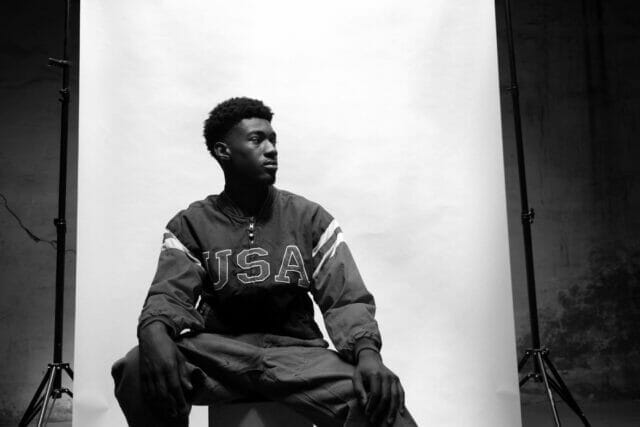
What to Ask Made in America Clothing Brands
Unless America gets national regulation such as The FABRIC Act, we can’t assume made in USA is ethical. We should expect to find information on a brand’s website such as where the clothes were made and evidence of fair wages.
Evidence of fair wages could be a certification like Fair Trade, the brand sharing the actual wages, or a statement like “our lowest paid garment maker earns 1.5x the minimum wage.” If you want to dig deeper, you can Google if the wage they shared is a living wage in that city and state.
Some fashion brands that are made in America may be overconfident or take it for granted that they are “ethical,” but honestly that’s a mistake on their part. If the brand does not share the above information you can and should ask them to provide it.
Do Clothes Made in U.S.A Have a Better Environmental Impact?

Let’s discuss the environmental footprint. If you live in the US, American made clothing may also come with a smaller carbon footprint.
Intuitively people assume made locally is always better for the environment, but fashion supply chains are complicated. For example, your t-shirt might be made in an American factory but the hemp might have come from China.
In the above example, if the hemp was grown and processed in China, then shipped to the US where the shirt was sewn and shipped to you, is that better than if the hemp was grown and processed in China, then sewn in China, and then shipped to you in the US?
An entirely local supply chain might be ideal from an environmental perspective, but it’s also pretty complicated. If the sewing and final shipping all happen locally, you may shave off some of the environmental impact.
We recommend not stressing too much about these details. A lot goes into making clothes more sustainably and every detail doesn’t have to be prefect. Focus on progress over perfection, and making the best choices you can at the moment.
What is Ethical Fashion?
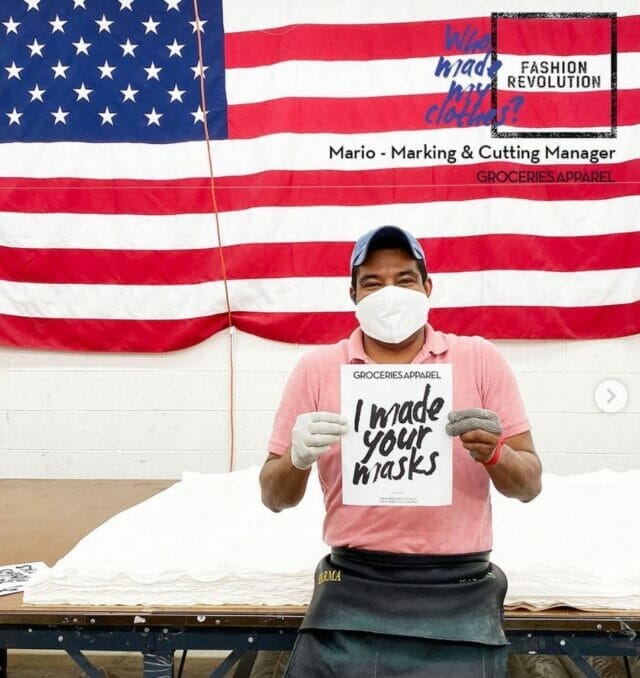
Ethical fashion is a term used to refer to clothing, accessories, and footwear that are manufactured in an ethical manner. This means that the products are produced in ways that do not exploit people or resources, as well as ensuring fair wages and working conditions for all people involved in its production.
Some people differentiate ethical fashion to be about people and sustainable fashion to be about the environment, but we don’t. We believe ethical and sustainable fashion should be good for both people and the planet, so the two terms shouldn’t have different meanings.
Ethically-made fashion is becoming increasingly popular with consumers around the world. By choosing items that are made ethically, consumers can help make a positive impact on the environment and help to ensure better lives for the people who make them.
What is Ethical Manufacturing?
Ethical manufacturing is the process of making clothes in a way that provide fair wages, safe working conditions, and respect for workers. This means that companies are providing living wages to their workers, ensuring that they have access to basic needs such as health care and education.
Furthermore, ethically made products may adhere to fair trade standards, meaning that producers are given fair prices for their products so that they can live with dignity and security. All in all, ethical manufacturing is an important part of creating a better world for everyone.
How to Identify Ethical and Sustainable Clothing Brands?
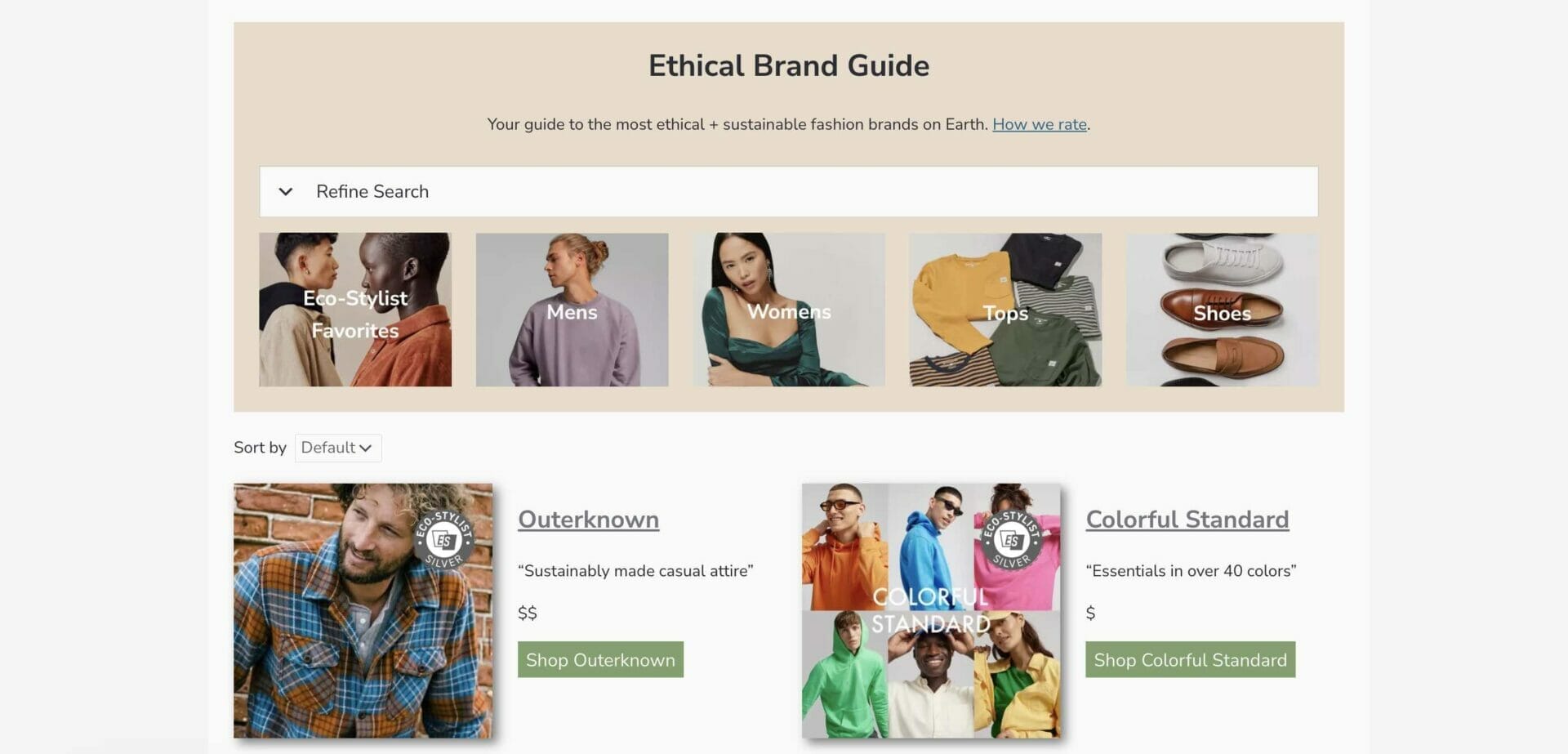
The easiest way is to use our website: Eco-Stylist. We’ve done the hard work and research for you, so all you have to do is discover and support great brands.
We thoroughly research all of our Certified brands for transparency, fair labor, and sustainably made. You can learn more about how we research brands here.
If you’re interested in evaluating fashion brands you encounter online a great place to start is certifications and sustainable fabrics. Check out our guides on both topics.
Take Action for Sweatshop Free Fashion in the US
The passing of the Garment Worker Protection Act, SB62, in California is a great first step towards ethical garment production in the US. However, that bill only applies to California, and with clothing produced in nearly every state, we need a nation wide bill.
Here’s some key ways you can support sweatshop free fashion in America, from signing petitions to shopping ethical made in USA brands.
Note: if you are a victim of wage theft, this page at Wagejustice.org has information on how to make a claim against your employer.
Activism to Support Made in America Fashion
Here’s 3 easy ways you can help support ethical fashion made in the USA.
- Sign this petition to support the FABRIC act.
- Share the petition with your friends and family.
- Share it on social media.
For more actions and to stay up to date on FABRIC, follow Remake.
8 Ethical Clothing Brands Made in USA
Want to support ethical made in USA brands? Here’s a few Eco-Stylist certified brands we love:
- The Classic T-Shirt Company (all made in LA)
- AlterX Co. (all made in LA)
- Fite Fashion (all made in USA)
- GOEX (made in Kansas City and Haiti)
- MATE the Label (made in LA and Peru)
- Groceries Apparel (all made in LA)
- Voyce Threads (all made in USA)
- Zero Waste Daniel (all made in USA)

Why It’s Important to Shop Made in US Clothing
By buying American-made clothing, you’re supporting local businesses and factories which helps create jobs and boost the local economy. It’s also a great way to support small businesses and the American fashion industry.
Remember, it costs more to pay fair wages in the US. A made in USA t-shirt may cost more, and it should.
Where to Find More Ethical Brands
Eco-Stylist! Check out our brand guide for 100+ certified ethical brands or our shop for over 1400 curated stylish pieces.
If you liked this article please share as it really helps us out! Got questions about made in America fashion? Let us know.

Kit George is a writer at Eco-Stylist. They study English and Creative Writing, Theatre Arts, and Nonprofit Leadership and Philanthropy at the University of Iowa. Kit enjoys fantasy novels, writing short stories and poetry, and Dungeons and Dragons.





